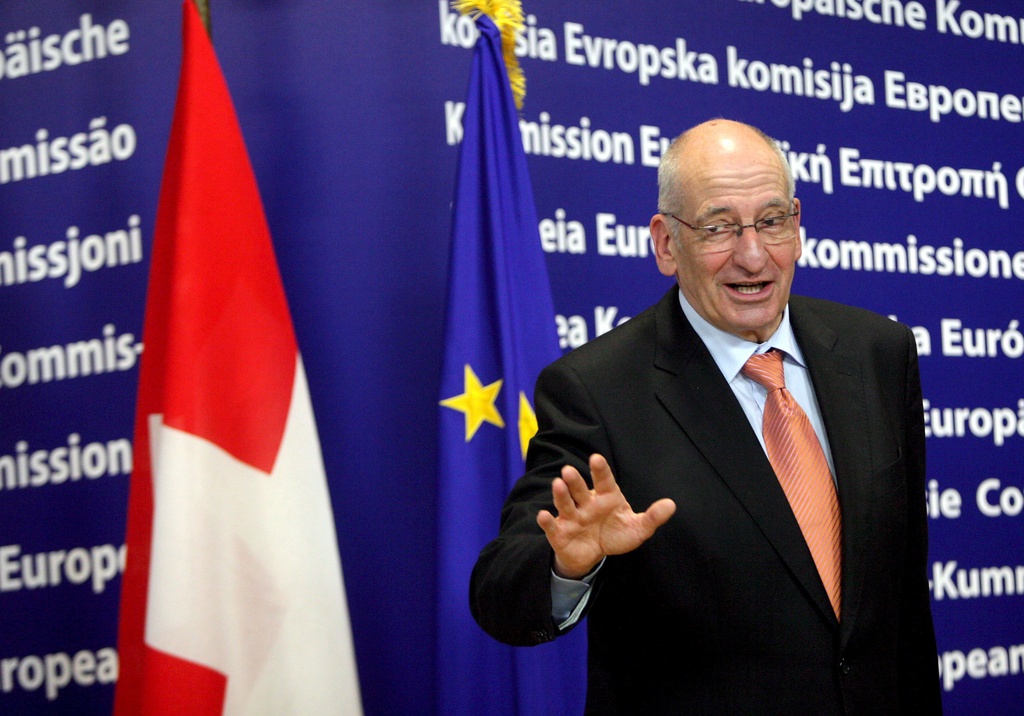EU approval ratings sink to record low

The European Union has never been more unpopular in the eyes of the Swiss, according to a survey published in the SonntagsZeitung and Le Matin Dimanche.
While 12 years ago a third of the Swiss approved of joining the EU, currently only around one in nine (11.5 per cent) does.
Twenty years ago, Swiss voters narrowly turned down the European Economic Area (EEA) or single market. Today only 31.8 per cent would vote in favour of joining the EEA.
This trend was also reflected in the traditionally EU-friendly French-speaking part of Switzerland. There, even as recently as two years ago, up to 60 per cent of voters backed EEA entry; now, however, the figure is 41.5 per cent.
“That there’s little public favour towards the EU is a Europe-wide phenomenon which is connected to the debt crisis,” reckoned Christa Markwalder from the centre-right Radical Party and president of the New Swiss European Movement, which is pushing for Switzerland to join the EU.
She admitted, however, that joining the EU was currently “not politically feasible” given the low approval ratings.
Since the rejection in the 1992 vote, the research institute Isopublic has asked every year on average 14,000 people aged 18-74 whether Switzerland should join the EU or EEA.
Concerns
Switzerland is not a member of the European Union but joining the EU remains the cabinet’s stated option. A Swiss application for membership has been lodged in Brussels – to the chagrin of the rightwing Swiss People’s Party – but remains dormant.
Under the Swiss system of direct democracy, an actual application to join the EU would entail a national referendum, and require a majority of voters and cantons in favour of joining.
The cold attitude to the EU is based on a number of factors. The union is perceived as falling short in democratic institutions. Switzerland’s frequently used system of initiatives and referenda would need drastic reform and curtailment to comply with EU rules.
There is also a concern about the cost: Switzerland would be a net contributor to the EU coffers, and there are doubts about whether neutrality would be compatible with EU membership.
The pragmatic response of the Swiss government since 1992 has been to engage in long and difficult talks with the EU on a series of bilateral accords.
The Swiss government decided in 1992 to apply for negotiations on EU membership. The application is currently shelved.
The government’s 2006 report on European integration stated that the Swiss policy is based on bilateral treaties.
In August 2010 the government published a report on the country’s European integration policy, which declared that bilateral accords were still the best way to work with the EU, despite increasing difficulties.
It has concluded 20 major bilateral agreements with the bloc. There are also about 100 secondary bilateral accords between Bern and Brussels.
Bilateral treaty package I (1999)
Focused on opening up markets, the free movement of persons, technical barriers to trade, public markets, agriculture, air, road and rail transport and Swiss participation in EU research programmes.
Bilateral treaty package II (2004)
Covered new economic interests and extended to cooperation and political questions (internal security, asylum, environment and culture), the Schengen/Dublin Accords, savings tax, processed agricultural products, media, environment, statistics, fraud, pensions, education and professional training.

In compliance with the JTI standards
More: SWI swissinfo.ch certified by the Journalism Trust Initiative












You can find an overview of ongoing debates with our journalists here . Please join us!
If you want to start a conversation about a topic raised in this article or want to report factual errors, email us at english@swissinfo.ch.